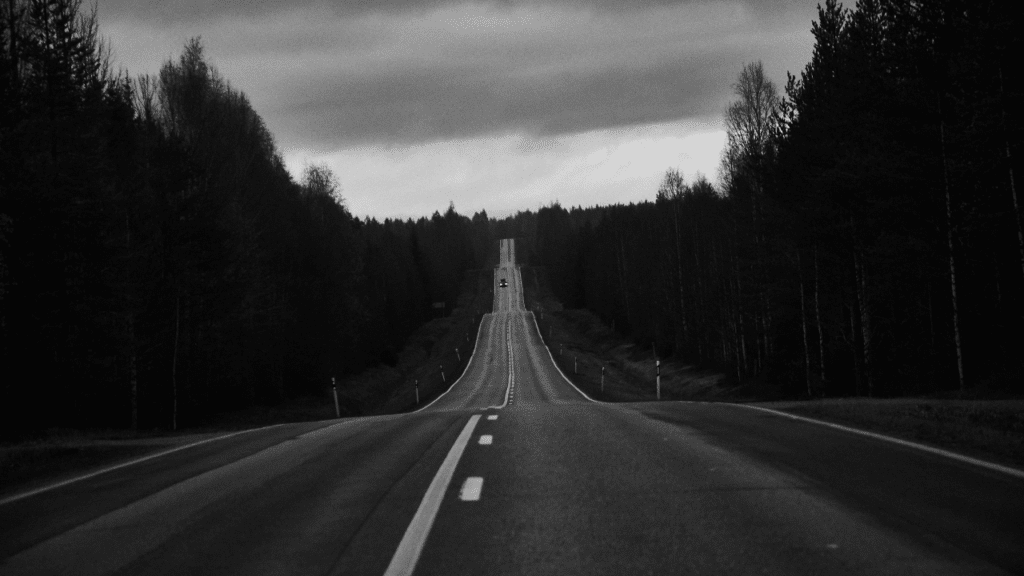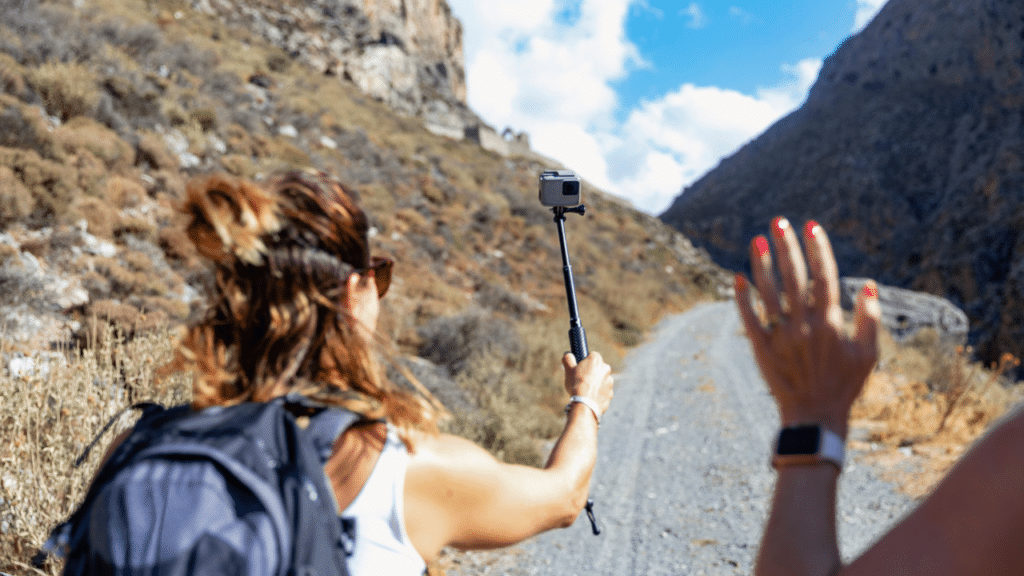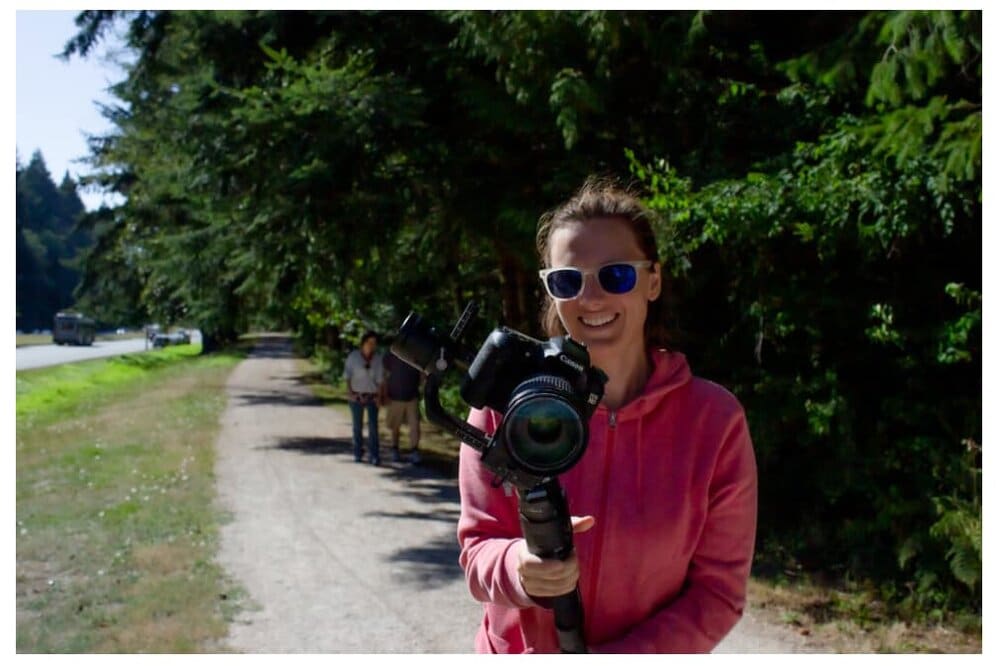How to Start Filmmaking at Any Age
Article by Colette Nichol, Story Strategist, SEO Expert, and Solo Filmmaker

If you’re wondering how to start filmmaking, you’re not alone.
When you’re an aspiring filmmaker, the thought of turning your dream into a reality can seem nearly impossible. When we’re starting out and deciding whether or not to pursue filmmaking, one of the most common thoughts is that we’re either too old or too young.
“If I’m 15, can I really become a filmmaker!?”
“Oh, no! I’m 45. I can’t become a filmmaker!”
You can become a filmmaker at any age. So this post will give you a brief overview of how to become a filmmaker, even if you’re a beginner, no matter what your age.
Dreaming of directing movies isn’t exclusive to any age group, so don’t worry.
If you’re younger, start small by making videos with your friends. Try making short films or a mini-documentary about your school. And if you’re an adult with a busy career, consider enrolling in a weekend filmmaking course or an online filmmaking program, or explore online tutorials.
But no matter what age you are, you learn filmmaking by making films!
So take a look at your daily, weekly, and monthly commitments and block out some time for you to pursue your filmmaking dreams. Put together your filmmaking kit, which we’ll talk about more shortly, and start shooting and editing micro films.
We learn by doing, not by thinking about doing.
Table of Contents
- 5 Stages to Make and Release a Film
- Starting a Career in Filmmaking
- How to Get Into Filmmaking as a Hobby
- How to Start Learning Filmmaking
- Getting an Idea to Start Filmmaking
- How to Start Filmmaking Without Actors
- How to Shoot a Movie with a Phone
- Filmmaking Course and Mentorship
- Common Questions about How to Start Filmmaking
5 Stages to Make and Release a Film
There are five main stages in film production: development, pre-production, production, post-production, and distribution.
Development is when you get your idea and start planning your story. Pre-production involves planning, scripting, shot listing, and casting. Production is where the actual shooting happens. Post-production involves editing, doing sound design, and color grading. Finally, distribution and marketing are when you release your film.
Each step is essential to bring a film to life and share it with an audience.
Read more about the Filmmaking Production Process and Filmmaking Steps >>>

Starting a Career in Filmmaking
Starting a career in filmmaking is a journey that requires creativity, perseverance, and a lot of learning.
You do not become a filmmaker by thinking about filmmaking or worrying about getting grants or funding. Start by making your own short films or micro films. Use the camera you have and start making things.
Volunteering on film sets, networking with professionals, and constantly creating videos and micro films are great starting points.
Even if you feel like you’re starting late, remember it’s never too late to chase your dreams.
How to Get Into Filmmaking as a Hobby
Filmmaking as a hobby can be a fun and creative way to enjoy your time and get to know the people in your community.
Start by shooting small projects like family vacations, gatherings, or making documentaries about people you know.
Watching movies critically, identifying shots, and understanding the narrative can enhance your filmmaking skills. Most importantly, always be ready to learn and explore.
Roll up your sleeve, grab your camera and start shooting shot sequences every day—or at least a couple times per month.
Then take that footage into the edit suite, aka onto your laptop and the free or low-cost edition software you have, and start cutting it together!

How to Start Learning Filmmaking
To start learning filmmaking, you need to start making tiny videos that you don’t show to anyone.
Come up with an idea for a shot sequence. Grab your camera, go shoot the sequence. Then bring it into your edit suite (whatever software works on your computer) and edit the sequence.
You learn filmmaking by taking an idea and trying to capture it and edit it. Iteration and repetition are how you become a filmmaker. Yes, it’s also helpful to immerse yourself in movies and analyze different film genres, but you can watch films your whole life and not know how to put one together.
Yes, you need to understand story structure and visual storytelling.
But you also need practical skills. You can learn basic filming techniques through online tutorials or courses. But remember that practice makes perfect, so start filming and editing your own short films.
And when you feel ready, seek out a filmmaking mentorship program so you can advance your filmmaking skills fast!

Getting an Idea to Start Filmmaking
Inspiration for filmmaking can come from anywhere, even from the most mundane things.
Personal experiences, a captivating book, or an intriguing conversation can all spark a film idea. Always keep an open mind and let your creativity flow.
The key to filmmaking is capturing motion and emotion.
If you’re having trouble thinking about what to film, write a list of all the things in your life that MOVE and HAVE EMOTIONS.
Who do you know that has an emotional story to tell?
Next, who do you know that does something that involves a lot of motion?
You can make a short film about your soccer club, your friend who is a fire dancer, the woman who teaches pottery down the street, a friend who started a dance club. All those ideas contain a lot of MOTION.
Or you could make a film about a friend who overcame huge obstacles to pursue a dream. If you want to make narrative films, think about all the people, please, and things that you have access to, then write a short film that features the things you’ve already got available.
Don’t make it hard on yourself by trying to rustle up people and places and stories that you can’t easily access.

How to Start Filmmaking Without Actors
Filmmaking without actors? Yes, it’s absolutely possible!
You can make a documentary, a travel vlog, a stop-motion animation, or a narrative film featuring non-actors. Consider using friends or family members in your short films. Write the short films based on who they are and you’ll be able to get natural performances from them.
How to Shoot a Movie with a Phone
Shooting a movie with a phone is totally doable.
But you need to ensure you have good cinematic lighting, keep your shots steady, and use external microphones for better sound. Apps like FiLMiC Pro can enhance your phone’s capabilities to give you more professional results.
🌟Related Article: iPhone Filmmaking Gear Guide

Filmmaking Course and Mentorship
Enrolling in a filmmaking or storytelling course or finding a filmmaking mentorship program can be beneficial.
Courses provide structured learning and practical exercises. Mentorship, on the other hand, offers personalized guidance and valuable industry insights. Both can help accelerate your filmmaking journey.
🌟 Related Post : 20 Tips To Help You Pick the Right Online Filmmaking Course

Common Questions about How to Start Filmmaking
Starting filmmaking might seem daunting, but with the right guidance and practice, it’s achievable.
How do beginners get into filmmaking?
Beginners can start their filmmaking journey by watching and analyzing movies and learning the basics of filmmaking and visual storytelling.
Creating simple videos with your phone, like a family event or a short narrative, is a practical first step. With time, you can delve deeper into more technical aspects, such as manual exposure, shot sizes and angles, lens choice, forms of stabilization, and sound design. Joining local film clubs or online communities or courses can provide opportunities for learning and collaboration.
How do I start filmmaking with no experience?
Starting filmmaking without experience can seem challenging, but everyone does it.
You’re NOT born to be a filmmaker, you turn yourself into a filmmaker with practice.
Begin with what you have. A smartphone is a great starting point. Use it to shoot, edit, and experiment with different styles. Free online tutorials and courses can help you learn the basics. Don’t be afraid to make filmmaking mistakes, as each mistake is an opportunity to learn and grow.
Remember, every expert was once a total beginner.
Is 25 too old to start filmmaking?
Absolutely not! If you’re 25, you’re not even close to being too old to start filmmaking.
In fact, age doesn’t matter when it comes to filmmaking.
Filmmaking is a field where creativity, passion, and storytelling matter more than age. Some acclaimed filmmakers didn’t start until their 30s or 40s or even later. So, if you’re 25 (or older!) and dreaming of making films, go for it. Start learning, create short films and network within the industry. Your unique life experiences will enrich your storytelling.
Can filmmaking be self-taught?
Yes, filmmaking can indeed be self-taught.
In fact, I taught myself filmmaking. But I didn’t do it in a vacuum. I read tons of filmmaking books. I practiced constantly, and I make thousands of horrifying mistakes.
Thanks to the internet, there’s an abundance of resources like online courses, video tutorials, filmmaking blogs, and forums at your disposal.
Many successful filmmakers started their journey as self-taught enthusiasts.
However, remember to balance theory with practice. Constantly creating and critiquing your own work is crucial for improvement.
And if you want to speed up your learning, I highly recommend taking a filmmaking course. I run a filmmaking mentorship program once per year where my students go from ambitious beginners to confident filmmakers and storytellers.
Learn more about the program HERE.
READ MORE USEFUL FILMMAKING POSTS:
🌟 Filmmaker Motivation – Be a Scrappy Filmmaker!
🌟 14 Filmmaking Techniques that’ll Make Your Zero Budget Movies Look “Cinematic”
Learn Filmmaking and Get the Gear Guide
If you’re interested in learning filmmaking, check out the Solo Filmmaking Mentorship Program I created for aspiring filmmakers and video creators. It usually goes live once per year. So I recommend getting the Story Envelope Filmmaking letter which comes out a couple of times per month. That way, you can get filmmaking tips for free and find out when the filmmaking course is going live again.
Also, before you go, grab the Solo Filmmaking Gear Guide and Checklist for Beginners.

About the Author
Hi! I’m Colette Nichol. I’m a solo filmmaker and story strategist based out of rainy Vancouver, Canada. I’ve been making videos and micro films for small businesses and global brands since 2014.
Plus, I LOVE to help aspiring filmmakers pursue their dreams and start making films. This blog is designed to help you gain the knowledge you need to become a filmmaker.
If you want more, get on the waitlist for the Story Envelope Academy Solo Filmmaking Mentorship Program. It opens up one time per year and is the best way to become a filmmaking or video pro fast!
CLICK HERE to get on the solo filmmaking mentorship waitlist.